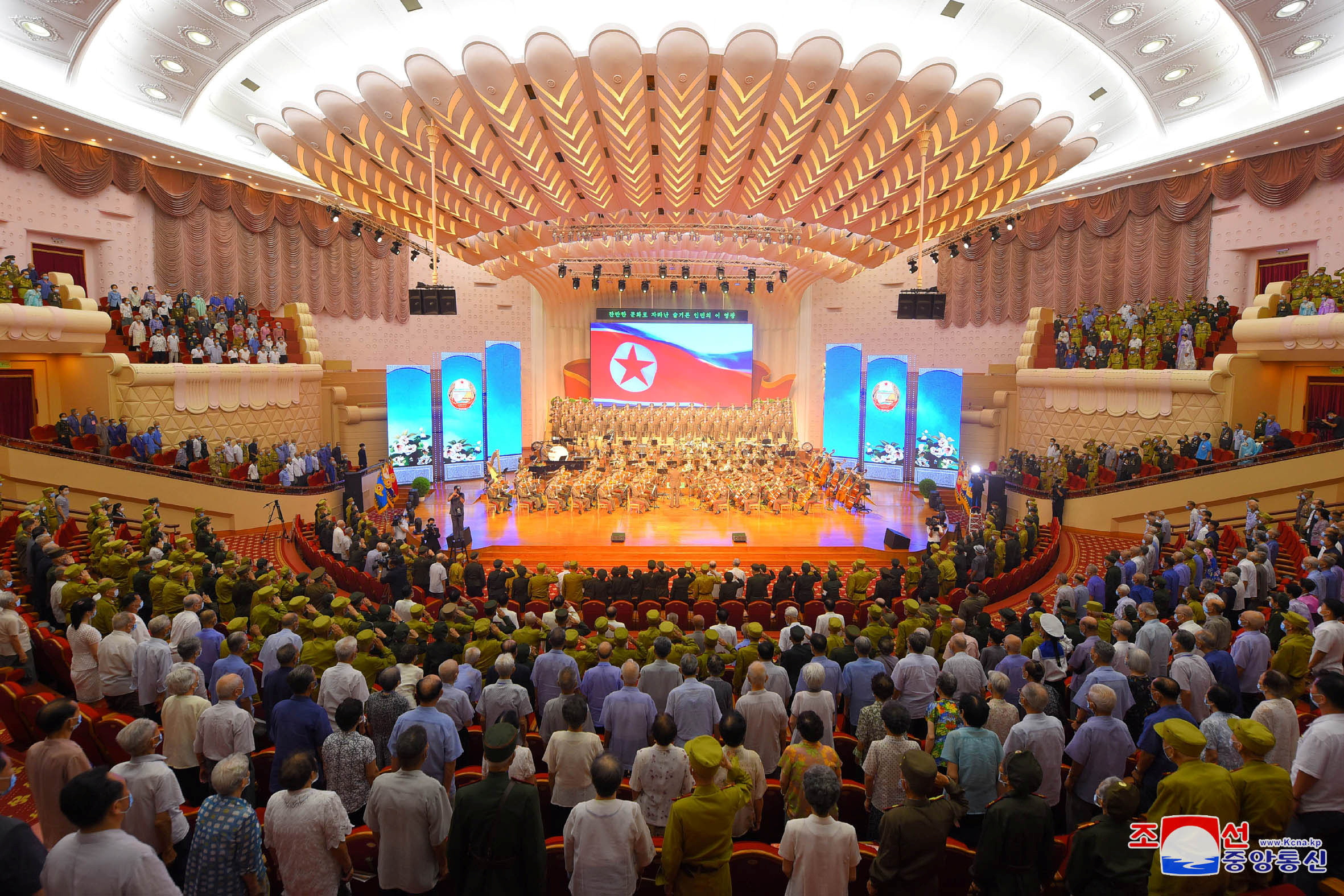
DPRK leader Kim Jong Un (C) visits the Fatherland Liberation War Martyrs Cemetery for the 68th anniversary of the Korean armistice in Pyongyang, the DPRK, July 27, 2021. /KCNA via Reuters
DPRK leader Kim Jong Un (C) visits the Fatherland Liberation War Martyrs Cemetery for the 68th anniversary of the Korean armistice in Pyongyang, the DPRK, July 27, 2021. /KCNA via Reuters
Kim Jong Un, the top leader of the Democratic People's Republic of Korea (DPRK), visited a cemetery on Monday midnight to pay respects to the soldiers killed during the 1950-53 Korean War to commemorate the armistice that ended the fighting in the war, the Korean Central News Agency (KCNA) reported.
Laying a flower at the cemetery, Kim, also general secretary of the Workers' Party of Korea (WPK), chairman of the State Affairs Commission and commander-in-chief of the armed forces of the DPRK, made a round of the cemetery together with other participants.
"No matter how much time may flow and how many times a generation is replaced by another, the noble revolutionary spirit and heroic exploits of the generation who won the victory in the war would dynamically propel the victorious advance of our people towards a fresh victory of the revolution," KCNA quoted Kim as saying.
The spirit will "steadily stimulate and sublimate patriotism and enthusiasm of the rising generations for struggle," he said.

A performance for the participants of the 7th National Conference of War Veterans takes place at the People's Theater for the 68th anniversary of the Korean armistice, in Pyongyang, the DPRK, July 27, 2021. /KCNA via Reuters
A performance for the participants of the 7th National Conference of War Veterans takes place at the People's Theater for the 68th anniversary of the Korean armistice, in Pyongyang, the DPRK, July 27, 2021. /KCNA via Reuters
A national conference of war veterans took place in Pyongyang on Tuesday for the second straight year, and all the war veterans across the country have received "various foodstuffs and precious tonics," KCNA reported.
Fighting in the Korean War ended after the signing of the armistice on July 27, 1953, leaving the Republic of Korea (ROK) and DPRK technically in a state of war. The DPRK called the war the Fatherland Liberation War and designated the armistice signing date as Victory Day.
The war did not persist for a long time but was extremely bloody, leading to more than 3 million civilian deaths and creating more than 3 million refugees.
According to statistics from the DPRK, the war destroyed about 8,700 factories, 5,000 schools, 1,000 hospitals and 600,000 households, and more than 2 million children under the age of 18 were relocated by the war.

